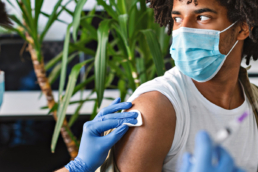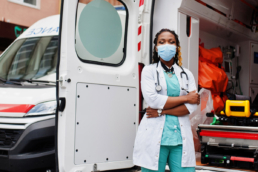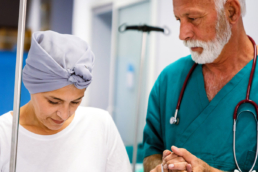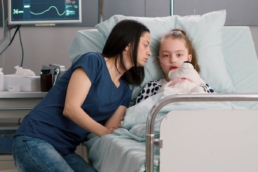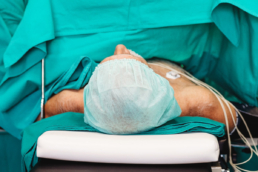Publications
Improving surgical outcomes through collaborative research
The NIHR Global Health Research Unit on Global Surgery
Improving surgical outcomes through collaborative research
Publications
In eget elit eget odio egestas luctus. Aenean vitae leo porta, vestibulum mauris ut, facilisis arcu. Pellentesque egestas ornare dui non interdum. Nullam a sollicitudin quam, ac bibendum leo. Etiam congue consequat metus quis egestas. Nulla quis faucibus orci. Fusce aliquet tincidunt ante vitae tincidunt. Fusce vitae eros eu nulla volutpat ultricies. Mauris dictum, nisi quis tincidunt egestas, mi nunc iaculis turpis, quis dignissim arcu felis a justo.
Study protocol for a cluster randomised trial of sterile glove and instrument change at the time of wound closure to reduce surgical site infection in low- and middle-income countries (CHEETAH)
April 8, 2022
Surgical site infection (SSI) represents a major burden for patients, doctors, and health systems around the world. The aim of this trial is to assess whether the practice of using separate sterile gloves and instruments to close wounds at the end of surgery can reduce surgical site infection at 30-days post-surgery for patients undergoing clean-contaminated, contaminated, or dirty abdominal surgery.
Projecting COVID-19 disruption to elective surgery
December 20, 2021
Millions of elective surgical procedures were cancelled worldwide during the first wave of the COVID-19 pandemic. This enabled redistribution of staff and resources to provide care for patients with COVID-19 and addressed evidence that perioperative SARS-CoV-2 infection increases postoperative mortality.
Global guidelines for emergency general surgery: systematic review and Delphi prioritization process
October 10, 2021
Existing emergency general surgery (EGS) guidelines rarely include evidence from low- and middle-income countries (LMICs) and may lack relevance to low-resource settings. The aim of this study was to develop global guidelines for EGS that are applicable across all hospitals and health systems.
Effect Of COVID-19 Pandemic Lockdowns On Planned Cancer Surgery
October 5, 2021
Background Surgery is the main modality of cure for solid cancers and was prioritised to continue during COVID-19 outbreaks. This study aimed to identify immediate areas for system strengthening by comparing the delivery of elective cancer surgery during the COVID-19 pandemic in periods of lockdown versus light restrictions.
Reducing surgical site infections in low-income and middle-income countries (FALCON): a pragmatic, multicentre, stratified, randomised controlled trial
October 5, 2021
Surgical site infection (SSI) is the most common postoperative complication worldwide. WHO guidelines to prevent SSI recommend alcoholic chlorhexidine skin preparation and fascial closure using triclosan-coated sutures, but called for assessment of both interventions in low-resource settings.
SARS-CoV-2 vaccination to support safe surgery during the pandemic: a modeling study using data from an international prospective cohort study
March 24, 2021
Preoperative SARS-CoV-2 vaccination could support safer elective surgery. Vaccine numbers are limited so this study aimed to inform their prioritization by modelling.
Methodological issues in economic evaluations of emergency transport systems in low-income and middle-income countries
March 14, 2021
A recent systematic review identified few papers on the economic evaluation of systems for emergency transport of acutely ill or injured patients. In addition, we found no articles dealing with the methodological challenges posed by such studies in low-income or middle-income countries. We therefore carried out an analysis of issues that are of particular salience to this important topic.
Timing of surgery following SARS‐CoV‐2 infection: an international prospective cohort study
March 9, 2021
Peri-operative SARS-CoV-2 infection increases postoperative mortality. The aim of this study was to determine the optimal duration of planned delay before surgery in patients who have had SARS-CoV-2 infection.
Global variation in postoperative mortality and complications after cancer surgery: a multicentre, prospective cohort study in 82 countries
January 30, 2021
80% of individuals with cancer will require a surgical procedure, yet little comparative data exist on early outcomes in low-income and middle-income countries (LMICs). We compared postoperative outcomes in breast, colorectal, and gastric cancer surgery in hospitals worldwide, focusing on the effect of disease stage and complications on postoperative mortality.
Surgical Site Infection in Children after Surgery: A global prospective cohort study
December 15, 2020
Surgical site infection (SSI) is one of the most common healthcare-associated infections (HAIs). However, there is a lack of data available about SSI in children worldwide, especially from low-income and middle-income countries. This study aimed to estimate the incidence of SSI in children and associations between SSI and morbidity across human development settings.
Identifying a Basket of Surgical Procedures to Standardize Global Surgical Metrics: An International Delphi Study
November 12, 2020
We aimed to define a globally applicable list of surgical procedures, or "basket," which could represent a health system's capacity to provide surgical care and standardize global surgical measurement.
Head and neck cancer surgery during the COVID-19 pandemic: An international, multicenter, observational cohort study
October 12, 2020
The aims of this study were to provide data on the safety of head and neck cancer surgery currently being undertaken during the coronavirus disease 2019 (COVID-19) pandemic.
Bringing together surgeons, researchers and policy makers to set the local research agenda according to patient need in LMIC and ensuring all patients have the opportunity to take part in our research.






